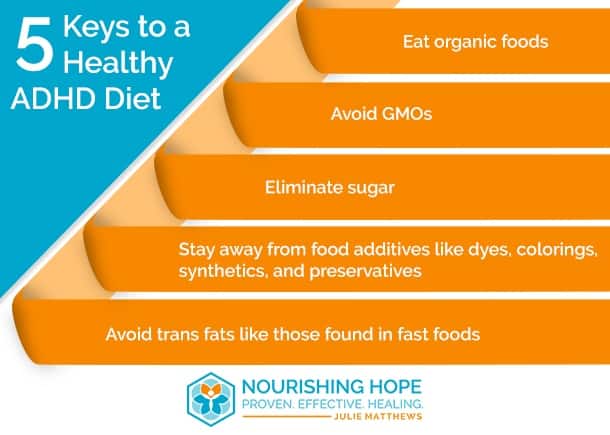In addition to structure, the use of technology has shown promising results in improving focus among those with ADHD. Applications designed to block distracting websites and notifications can help maintain concentration during work or study sessions. One such tool, Forest, encourages users to stay focused by growing a virtual tree that thrives only when they refrain from using their phones. Such gamified approaches not only provide a visual representation of focus but also add an element of fun to the task at hand.
Schools play a crucial role in supporting students with ADHD. Educators are encouraged to implement individualized
education plans (IEPs) or 504 plans to create an accommodating learning environment. Simple adjustments, such as providing a quiet space for tests or allowing extra time for assignments, can make a significant difference in a student’s academic success.
As society continues to evolve in its understanding of ADHD, it is essential to foster an environment of acceptance and support for those affected by the disorder. Advocacy groups are working tirelessly to promote awareness, dispel myths, and encourage open conversations about ADHD. By sharing personal stories and experiences, individuals with ADHD behavioral strategies -
flipboard.com - can help others understand the challenges they face and the strengths they possess.
Digital Tools for ADHD
Digital tools are transforming how ADHD symptoms are managed. Various apps and digital platforms have been developed to assist individuals in staying organized and maintaining focus. Gamified apps for task management and ADHD focus are growing in popularity. Gamified platforms engage ADHD individuals while promoting positive habit development.
Attention Deficit Hyperactivity Disorder (ADHD) is a neurodevelopmental disorder that affects millions of children and adults worldwide. Characterized by symptoms of inattention, hyperactivity, and impulsivity, ADHD can significantly impact daily life, academic performance, and social interactions. Despite its prevalence, ADHD remains shrouded in misconceptions and stigma, leading to misunderstandings about its nature and treatment.
Using Meditation to Manage ADHD
One popular mindfulness technique is mindfulness meditation, where individuals focus on their breath and observe their thoughts without judgment. It enhances focus and eases anxiety, addressing core ADHD challenges. Another effective method is the use of mindfulness-based cognitive therapy (MBCT), which combines cognitive behavioral techniques with
mindfulness strategies. ADHD individuals benefit from MBCT's focus on emotional and behavioral coping mechanisms.
ADHD has long been treated with stimulant medications such as amphetamines. Though effective, these medications do not work universally and may have side effects. Some patients face side effects or insufficient benefits from these drugs. New approaches are being studied to boost focus and productivity in ADHD patients.
Another myth is that ADHD is overdiagnosed and that many children are unfairly labeled. While it is true that the diagnosis of ADHD has increased in recent years, this trend is largely attributed to heightened awareness and improved diagnostic criteria. Experts emphasize that a proper diagnosis involves a comprehensive evaluation by a qualified professional who considers the individual’s history, behavior across different settings, and input from caregivers and teachers.
Finally, the importance of support systems cannot be overstated. Whether through therapy, coaching, or support groups, connecting with others who understand the challenges of ADHD can provide invaluable encouragement and resources. Parents, teachers, and employers play a crucial role in fostering an environment that promotes focus, understanding, and empathy.
In conclusion, ADHD is a complex and multifaceted condition that requires greater awareness and understanding. By breaking down stereotypes and misconceptions, society can pave the way for more compassionate support systems, improved educational opportunities, and better mental health outcomes for individuals with ADHD. It is time to embrace the reality of ADHD and recognize the potential that lies within each person affected by it.
Nutrition also plays a vital role in managing ADHD symptoms. Experts recommend a balanced diet rich in omega-3 fatty acids, fruits, vegetables, and whole grains, as these nutrients support brain health. Some individuals may benefit from limiting sugar and processed foods, which can exacerbate hyperactivity and inattentiveness.
Advancements in ADHD care bring hope for enhanced focus and well-being. Healthcare advancements suggest a hopeful future for individuals living with ADHD. A multi-dimensional strategy empowers ADHD individuals to excel in life and work.
Common myths about ADHD contribute to the stigma surrounding it. One prevalent misconception is that ADHD is merely a result of poor parenting or lack of discipline. In reality, research indicates that genetics play a significant role in the development of ADHD. Brain imaging studies have shown structural and functional differences in the brains of individuals with ADHD compared to those without the disorder. This evidence underscores the importance of understanding ADHD as a complex neurobiological condition rather than a behavioral issue stemming from environmental factors.
